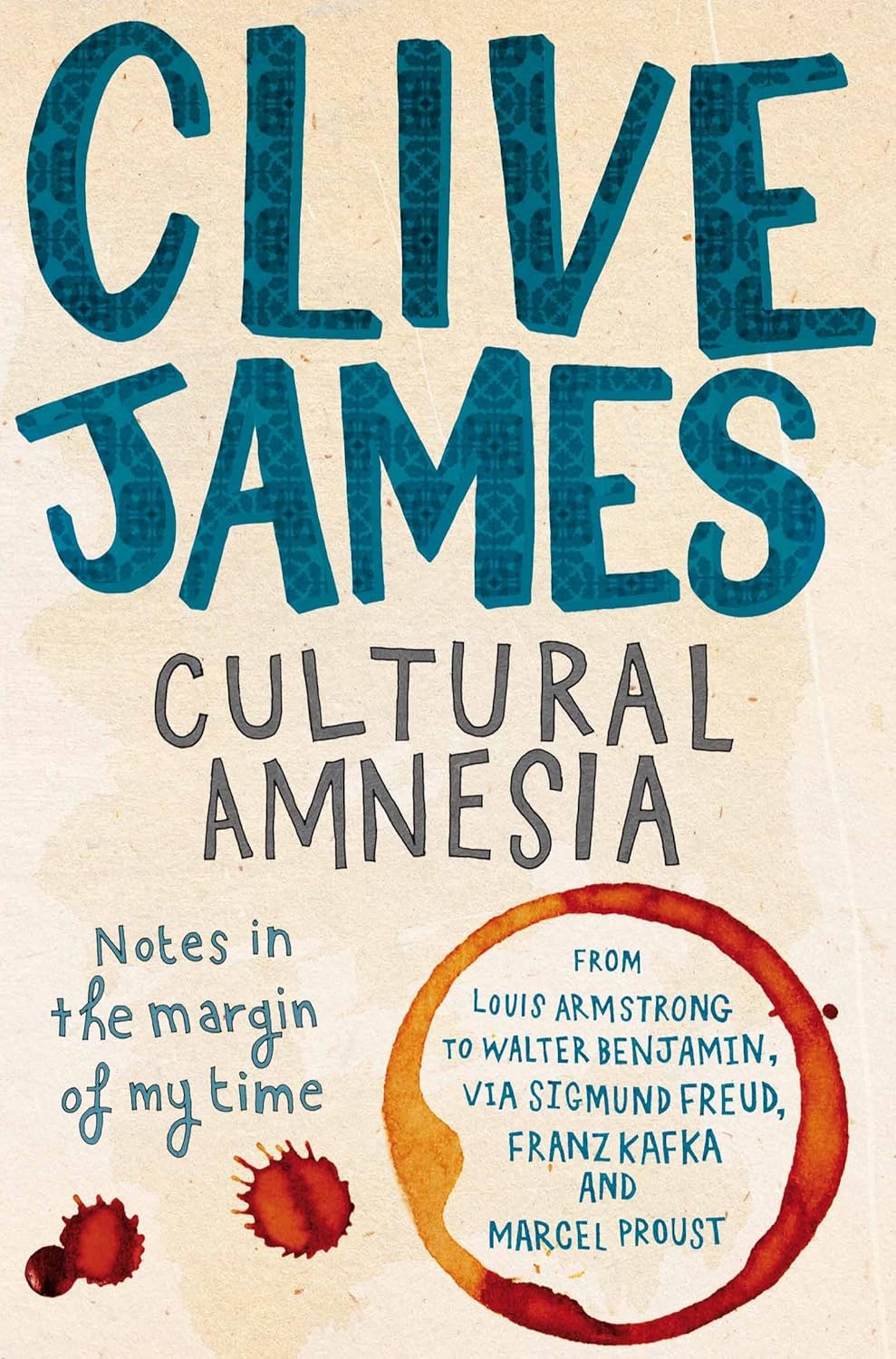
Cultural Amnesia: Notes in the Margin of My Time
FREE Shipping
Cultural Amnesia: Notes in the Margin of My Time
- Brand: Unbranded

Description
Let me hasten to add that I am not one of those self-proclaimed Enemies of Cliché – clichés can be quite handy sometimes.
A compendious compilation of cultural and historical monsters and man-stars (and women-stars), the volume swings with opinions on literature, the nature of evil over the century (the book’s kernel is a philosophical exploration of the holocaust), Clive’s own obscure literary heroes, and an unsummarisable outpouring of anecdotes, ramblings, opinions, and endless stream of erudition that leaves the reader in awe.
Builders of concentration camps might be creators of a kind—it is possible to imagine an architect happily working to perfect the design of the concrete stanchions supporting an electrified barbed-wire fence—but they were in business to subtract variety from the created world, not to add to it. With fascinating essays on artists from Louis Armstrong to Walter Benjamin, Sigmund Freud to Franz Kafka and Beatrix Potter to Marcel Proust, Cultural Amnesia is one of the crowning achievements in Clive James's illustrious career as a critic. For me this is precisely the job of a critic - not to praise or condemn but to refine his own sensibilities by understanding those of others. One of the most famous cabaret artists of his day, Friedell in the 1920s combined his career in show business with a monkish dedication to his library, in which he produced a book of his own that must count as one of the strangest and most wonderful of the twentieth century: Kulturgeschichte der Neuzeit (The Cultural History of the Modern Age).
A February 2013 interview with James was published in The New Republic, and provides insight about James' approach to educating himself: http://www. He might begin an essay with one quote or pretext that would imply a central idea, and then he would veer off in another direction entirely. Elsewhere he mentions that a custom-made suit he bought in Italy was from the same tailor used by Gorbachev; said tailor mentioned James and Gorbachev share the exact same measurements (thank God we weren’t informed as to whether both gentlemen “dressed” to the same trouser leg). I hope to get Russian back, but the written version of Japanese is the kind of language that you can study hard for five years and yet can’t neglect for a week without its leaving you like a flock of birds.Still, there is sometimes a sense that his veneration of clarity, while refreshing, can be misleading. To younger readers who might find themselves wondering why it is so full of forgotten names, and takes such a violently unpredictable course, the first thing to say is: welcome to the twentieth century, out of which your century grew as surely as a column of black smoke grows from an oil fire. Scott Fitzgerald, Franz Kafka, Marcel Proust, and Ludwig Wittgenstein, James illuminates, rescues, or occasionally demolishes the careers of many of the greatest thinkers, humanists, musicians, artists, and philosophers of the twentieth century.
The word phenomenon isn’t even really English, certainly not an English form, and I am troubled by its misuse about as much as I am octopi vs. He often talks about his experiences teaching himself to read a host of languages, including Spanish, German, and Russian by having a dictionary in one hand and one of the classics he discusses in his essays in the other. In the job we can have a profile written about us, and be summed up: all the profiles will be the same, and all the summaries add up to the same thing.
Each essay starts with a brief biography, then launches into an essay on some aspects of the figure's history, triggered by quotations from the works which at some point James jotted down in his notebooks as he read. more excerpts followed — a sumptuous aggregate which still represents only a small fraction of a large book. The decline of grammar is a feature of our time, so I have tried, at several points in this book, to make a consideration of the decline part of the discussion. Alternatively if it's just going to be a random collection of biographies, a different quarter should be cut, namely some of those which do concern totalitarianism. Russian while seated at a café, usually the Copper Kettle (which is at Cambridge – as he’s quick to remind you) or some exotic locale during his extensive travels and TV documentary shoots.
- Fruugo ID: 258392218-563234582
- EAN: 764486781913
-
Sold by: Fruugo
